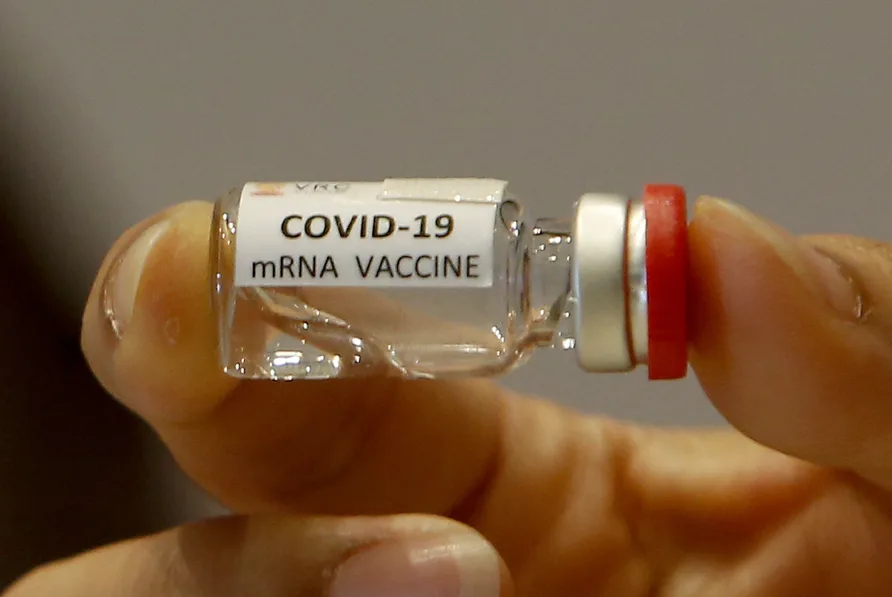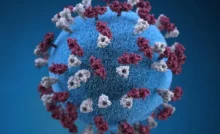The global battle against the COVID-19 pandemic marked a significant turning point in medical science. As the virus swept across continents, the world found itself grappling with a novel threat that demanded an unprecedented response. At the forefront of this battle were the mRNA vaccines, a revolutionary breakthrough that not only helped curb the spread of COVID-19 but also shifted the paradigm in how we approach viral diseases.
Now, five years after the introduction of mRNA vaccines, it’s clear that this technology holds promise far beyond the coronavirus pandemic. From cancer therapies to future vaccines for other infectious diseases, mRNA technology is poised to change the future of healthcare. This journey from pandemic panic to hope hinges on continued investment in this innovative technology, which has the potential to revolutionize medicine.
The Birth of mRNA Vaccines
Before the world heard about mRNA vaccines, the idea was largely theoretical. Messenger RNA (mRNA) is a molecule that carries genetic information from DNA to the cells, instructing them on how to make proteins. The breakthrough behind the COVID-19 mRNA vaccines was the idea of using this molecule not just as a biological messenger but as a tool to instruct cells to produce the spike protein of the coronavirus, prompting an immune response without introducing the virus itself.
While the technology had been researched for decades, COVID-19 accelerated its development. Scientists at Pfizer-BioNTech and Moderna, among others, were able to develop mRNA vaccines at record speed due to previous research on mRNA technology, as well as advances in areas like lipid nanoparticles, which help deliver the mRNA into human cells. The result was an effective vaccine that could be quickly mass-produced and distributed globally, a feat that would have seemed impossible just a few years prior.
The vaccines developed by Pfizer-BioNTech and Moderna were some of the first of their kind to be authorized for emergency use. These vaccines were not only effective in preventing severe disease but also demonstrated the ability to stop transmission of the virus in some cases. The success of these vaccines was a testament to the power of mRNA technology.
The Immediate Impact: A Global Response
The COVID-19 pandemic shook the world in ways that few could have predicted. The virus claimed millions of lives, overwhelmed healthcare systems, and disrupted economies. As the world waited for a solution, mRNA vaccines emerged as the most promising tool to combat the virus.
The vaccines provided a rapid response to the pandemic. Within months of the virus’s identification, vaccines were being administered across the globe. The speed at which mRNA vaccines were developed, tested, and distributed was unprecedented. The success of these vaccines led to a sharp decline in the number of severe cases and hospitalizations, and the global vaccination campaign helped mitigate the damage caused by the pandemic. This response helped reduce the impact of COVID-19, and vaccines became the primary tool for controlling the virus.
However, despite the success, there were challenges. Variants of concern, such as Delta and Omicron, emerged, forcing researchers to adapt and update the vaccines. Booster shots were introduced to combat waning immunity, and countries that had initially struggled with vaccine access rushed to ramp up their vaccination efforts.
The Legacy of mRNA Technology
As the world moves beyond the acute phase of the pandemic, the mRNA vaccine technology continues to have a lasting impact. The rapid development of vaccines for COVID-19 showcased the potential of mRNA technology to address not only viral outbreaks but other forms of disease as well.
One of the most promising aspects of mRNA vaccines is their adaptability. Unlike traditional vaccines, which often rely on growing the virus or bacteria in a lab, mRNA vaccines can be quickly adjusted to address new variants or entirely different pathogens. Researchers are already exploring mRNA-based vaccines for diseases such as Zika, HIV, and influenza. The flexibility and speed at which mRNA vaccines can be developed could revolutionize vaccine production and distribution for future pandemics.
Beyond infectious diseases, mRNA technology holds promise for treating a wide range of conditions. Researchers are exploring the potential for mRNA vaccines in cancer treatment. Cancer cells are characterized by abnormal proteins that the immune system may not recognize. By using mRNA to instruct the body to produce specific proteins that can trigger an immune response against these cancer cells, researchers hope to develop personalized cancer vaccines that can target and eliminate tumors. This groundbreaking work is still in its early stages, but the potential is enormous.
Moreover, mRNA vaccines could also be applied in the treatment of genetic disorders. Diseases caused by genetic mutations, such as cystic fibrosis, could potentially be addressed by using mRNA to instruct cells to produce the missing or defective proteins. This approach could lead to treatments that tackle the root causes of genetic disorders rather than simply alleviating symptoms.
Challenges and the Path Forward
Despite the significant breakthroughs, the journey of mRNA vaccines is not without its challenges. The initial rollout of COVID-19 vaccines revealed issues related to distribution, especially in low-income countries. While mRNA vaccines were developed rapidly, ensuring equitable access to these life-saving vaccines posed a major hurdle. The logistical challenges of storage and transportation, particularly the need for ultra-cold storage, were significant barriers in some parts of the world.
Moreover, vaccine hesitancy remains a significant challenge. Despite the overwhelming evidence of the efficacy and safety of mRNA vaccines, a segment of the global population remains resistant to vaccination. Misinformation and mistrust of public health institutions have contributed to vaccine hesitancy, complicating efforts to achieve widespread vaccination and herd immunity.
There is also the issue of long-term side effects. While mRNA vaccines have been shown to be safe in the short term, there is still much to learn about their long-term effects. As more people receive the vaccines, scientists will continue to monitor for any potential long-term complications. Ongoing research and transparent reporting will be crucial in maintaining public trust in these vaccines.
One of the biggest challenges in the future of mRNA technology is the cost. While the production of mRNA vaccines is faster and more flexible, it is still an expensive process. Governments and private organizations will need to continue to invest in the infrastructure required to scale up mRNA production and make these vaccines accessible to all. Additionally, the cost of developing mRNA-based treatments for diseases like cancer and genetic disorders will be a major factor in their widespread adoption.
The Future of mRNA Vaccines and Health Care
Looking ahead, the continued investment in mRNA technology is crucial. Governments, pharmaceutical companies, and academic institutions must collaborate to ensure that mRNA vaccines and therapies reach their full potential. The technology has already proven to be a game-changer in the fight against COVID-19, and its potential applications in other areas of medicine are vast.
For instance, the development of universal flu vaccines, which could provide protection against multiple strains of the influenza virus, is an area where mRNA technology could be a major breakthrough. Similarly, vaccines for diseases like malaria and tuberculosis, which have long eluded effective treatment, could benefit from the flexibility of mRNA-based platforms.
In addition to infectious diseases, mRNA technology’s potential to revolutionize the treatment of cancer, genetic disorders, and other chronic diseases is still in its infancy. Personalized medicine, where treatments are tailored to the individual’s genetic makeup, could become a reality with the help of mRNA technology. The ability to target specific cells or tissues with customized mRNA molecules could lead to treatments that are more effective and less invasive.
Moreover, the lessons learned from the COVID-19 vaccine rollout have shown the world that rapid vaccine development is not just possible but necessary in a world where pandemics are an ever-present threat. The mRNA platform offers a unique opportunity to prepare for future outbreaks by having the infrastructure in place to quickly develop vaccines for emerging pathogens.
Five years after the introduction of mRNA vaccines, it is clear that this technology has had a profound impact on global health. The rapid development of vaccines for COVID-19 not only saved millions of lives but also demonstrated the potential for mRNA technology to address a wide range of diseases. From cancer therapies to personalized treatments for genetic disorders, the future of mRNA vaccines is bright.
However, the journey is far from over. To fully realize the potential of mRNA technology, continued investment in research, production, and distribution is essential. The challenges of vaccine equity, hesitancy, and cost must be addressed, and the global health community must work together to ensure that these innovative treatments are accessible to all.
In the coming years, mRNA technology may well become the cornerstone of personalized medicine, providing treatments that were once thought impossible. Five years ago, we were looking for a solution to a global crisis. Today, we stand on the precipice of a medical revolution, with mRNA vaccines leading the way toward a healthier, more resilient future.









